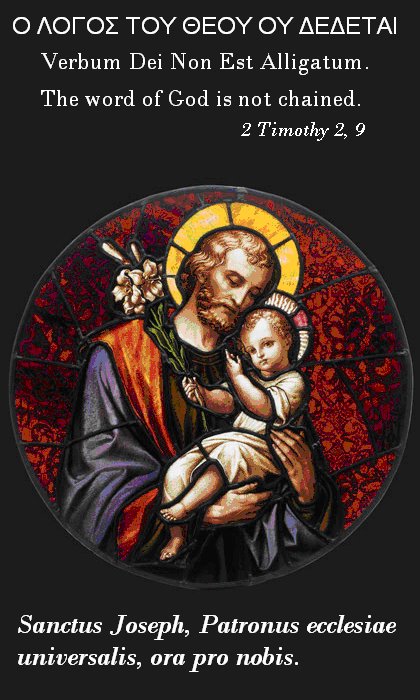I've been remiss in my postings the last week or so: very busy with tutoring, and almost all my free time has been taken up with some translation work I'm doing for Ignatius Press. More on that, perhaps, in a later post. Today, I'm prompted to respond to a piece that Ralph McInerny posted several days ago on the website The Catholic Thing, a piece entitled "The Marrying Animal". In it he says: "Tolstoy became a fruitcake as he grew older, his own marriage was more war than peace, and he fled to the local railway station where he died, refusing his wife admittance. He also wanted to reinvent Christianity." It seems that McInerny is unaware, and might be gratified to know, as I was, that Tolstoy very probably sought to be reconciled to Holy Mother Church in the last days of his life. I quote extensively from the chapter on Tolstoy in a book by Karl Stern entitled The Flight From Woman (I've posted on Stern before; his conversion story, The Pillar of Fire, is well worth reading):
"We have reason to believe that the dying Tolstoy, like Andrew, came back to the faith of Marie [referring to characters from War and Peace - A.]. During the course of his famous flight from home, some remarkable events occurred which are either minimized or entirely omitted by most biographers. After the old man left his home under cover of darkness (on the night of October 26th), only accompanied by his servant Duchan Petrovich, the first goal of his secret trip was the Optina monastery. This in itself -- considering the excommunicated, the sectarian -- is strange. In his younger years Tolstoy had made pilgrimages there. This time he went with the explicit purpose of talking to the Prior, Father Joseph. It seems that the porter did not answer quickly enough, and the aged poet, with the restlessness and impatience which characterized that entire episode of the flight, turned away to spend the night at the monastery's guest house. However, even there he left precipitously at three o'clock in the morning on the 29th (not without having properly signed his name in the guest book). In view of the idea we have of Tolstoy's later years it is equally remarkable that the next stop of his trip should have been a convent -- the convent of Shamardino. There Tolstoy's sister Marya lived as a nun. He intended to stay in Shamardino for about two weeks. Tolstoy had always maintained a particular affection for this sister, an affection which was mutual. Although it is held that Marie Bolkonska is modeled after Tolstoy's mother, it is possibly no coincidence that he gave her the name of his own sister.
However, Tolstoy could not stay at the convent because Alexandra, his daughter, came and warned him that his wife was about to track him down. (It is quite conceivable that Alexandra made him leave out of jealousy towards Marya.) At any rate, a few days later, when he was lying on his deathbed in the station-master's house in Astapovo, the Metropolitan of Moscow wired a paternal greeting which was witheld from the dying man. Moreover, the Holy Synod wanted to send Starets Joseph to Tolstoy's bedside, but the monk happened to be sick. Thus, in his place, a Father Varsonofy arrived from the monastery with the sacraments. In vain did he plead to be allowed to see the dying man. Tolstoy's entourage, particularly Alexandra it seems, felt that the sight of the priest would be too much of a shock. For the same reason Sonya was not admitted to the side of her dying husband, and it is moving to read how she pleaded, nearly crazy with grief and frustration, to be allowed at least to enter the room. ...
The fact that Tolstoy, under the premonition of approaching death, headed for the monastery to see the Prior, and then to the convent to see his sister, is most remarkable. Unfortunately, no record seems to exist of his last conversations with Marya. But a strong inference may be drawn from a note which Father Varsonofy wrote to Countess Alexandra Tolstoy, when he asked for permission to be admitted to the dying man's side: "You know that the Count had expressed in front of his own sister, your aunt who is a nun, the desire to see us and talk with us in order to obtain peace for his soul, and that he deeply regretted that he had not been able to fulfill this desire." The plea was received on November 5 and was refused. On the morning of November 8, 1910, Tolstoy died."
I pray that, in the end, Tolstoy found that peace which he sought. Requiescat in pace.
Tuesday, June 9, 2009
Subscribe to:
Post Comments (Atom)

No comments:
Post a Comment